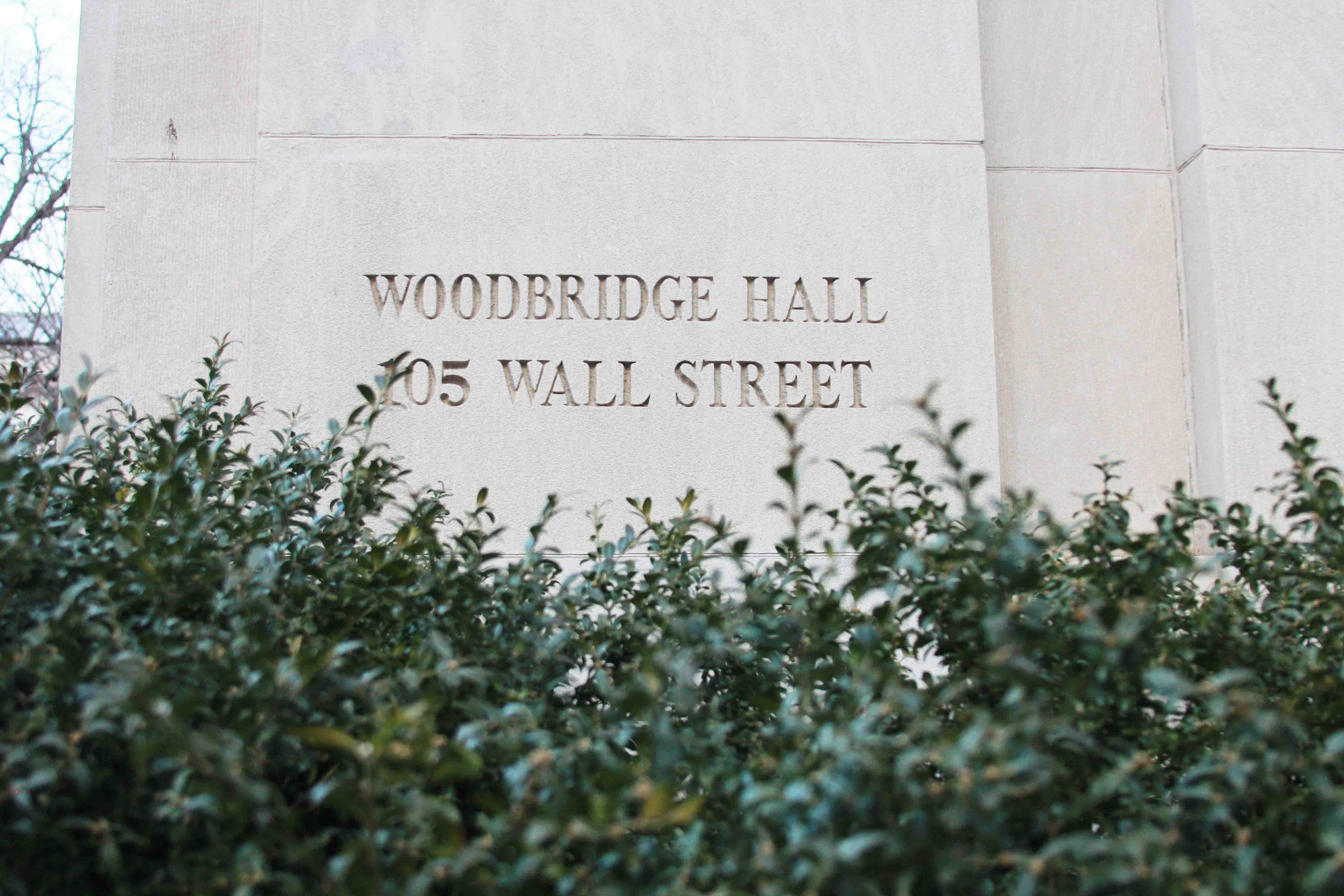
The Yale Corporation gathered on campus this weekend for its first meeting since the University announced a series of new initiatives designed to make the Corporation more transparent and accessible. But even as the trustees put those initiatives into effect — meeting with campus organizations and dispatching representatives to various events — student activists continued to voice distrust for Yale’s highest governing body.
A member of the Corporation met with Fossil Free Yale, the Dwight Hall Socially Responsible Investment Fund and Yale Students for Prison Divestment for an hour and a half at Luce Hall on Saturday to discuss the University’s investment policies. Over the course of the weekend, the trustees fanned out across Yale to meet with a number of other groups, including the student editors of the Yale Journal of Medicine and Biology.
But for undergraduate critics of the Corporation, which conducts its five annual meetings in almost total secrecy, the trustees’ new commitment to student outreach is not enough. On Friday afternoon, members of FFY, YSPD and Students Unite Now assembled outside Woodbridge Hall to call for further concessions from the trustees, including regular student participation in the closed-door meetings.
As rain poured onto Beinecke Plaza on Friday, activists described the demonstration as an example of the open and inclusive dialogue still missing from the Corporation’s meetings.
“A huge part of it being a model Corporation meeting is that students would be in a Corporation meeting,” said Chelsea Watson ’17, the communications director for FFY, as a crowd of around 50 activists gathered outside Woodbridge. “Just having the opportunity for the students to engage with the main decision-makers of Yale would be a really huge step forward as far as increasing accountability.”
In a speech at the demonstration, SUN member Julia Salseda ’19 said the Corporation denied her group’s request for a weekend meeting. SUN, which advocates for the elimination of the Student Effort expectation for students receiving financial aid, has also asked for a meeting with University President Peter Salovey, who expressed reluctance to sit down with the group last week.
Salseda declined to elaborate on her comments. But in an interview, University Secretary and Vice President for Student Life Kimberly Goff-Crews told the News that the trustees did not have time to meet with SUN this weekend.
“We can’t get to everybody that asks immediately,” Goff-Crews said.
Instead, Catharine Hill GRD ’85, a trustee who serves on the Corporation Committee on Investor Responsibility, met with FFY and YSPD to discuss Yale’s investments in Exxon Mobil Corp. and the private prison industry. At the meeting in the Luce Hall auditorium, student activists urged Hill to allow more direct contact between undergraduates and the CCIR, which has decision-making authority over the University’s endowment. Historically, FFY and YSPD have interacted primarily with the Advisory Committee on Investor Responsibility, a group of students, staff members, faculty members and alumni that reports to the CCIR.
Hill argued at the meeting that more frequent contact between undergraduates and the CCIR would disrupt Yale’s governance structure and “undermine the ACIR.” But in an interview with the News, Nathan Lobel ’17, the policy coordinator for FFY, challenged that argument.
“The governance structure is created by the University, so the University could decide to change the governance structure,” Lobel said. “What’s frustrating for us is the Corporation only meets once every three months or so, and the ACIR only meets infrequently as well, so we’re working all the time to make arguments and build student support for divestment, but these lag times create enormous inefficiency.”
Joseph Gaylin ’19, a member of the prison divestment group who attended the meeting with Hill, praised the Corporation for sending a representative to sit down with students. But he also urged the CCIR to communicate directly with student activists rather than using the ACIR as an intermediary.
“In addition to using the structure that’s set up, we would certainly push for more direct contact, and we think it’s really effective in terms of creating accountability measures and transparency measures,” Gaylin said.
Last month, Senior Fellow Donna Dubinsky ’77 unveiled an array of initiatives designed to make the Corporation more accessible to Yale students. The initiatives ranged from an updated website featuring short biographies of each trustee to the promise of regular discussions with undergraduate and graduate students.
The Corporation also informally changed its title to the Board of Trustees, hoping to correct the widespread misperception that fellows have a financial stake in the University. Its legal name will remain the same. But, at the protest, most activists continued to refer to body as the Corporation.
“New policies that will make the Corporation more accountable to students is more important than rebranding,” Gaylin said. “We hope we can actually trust the Board of Trustees in the years to come.”







